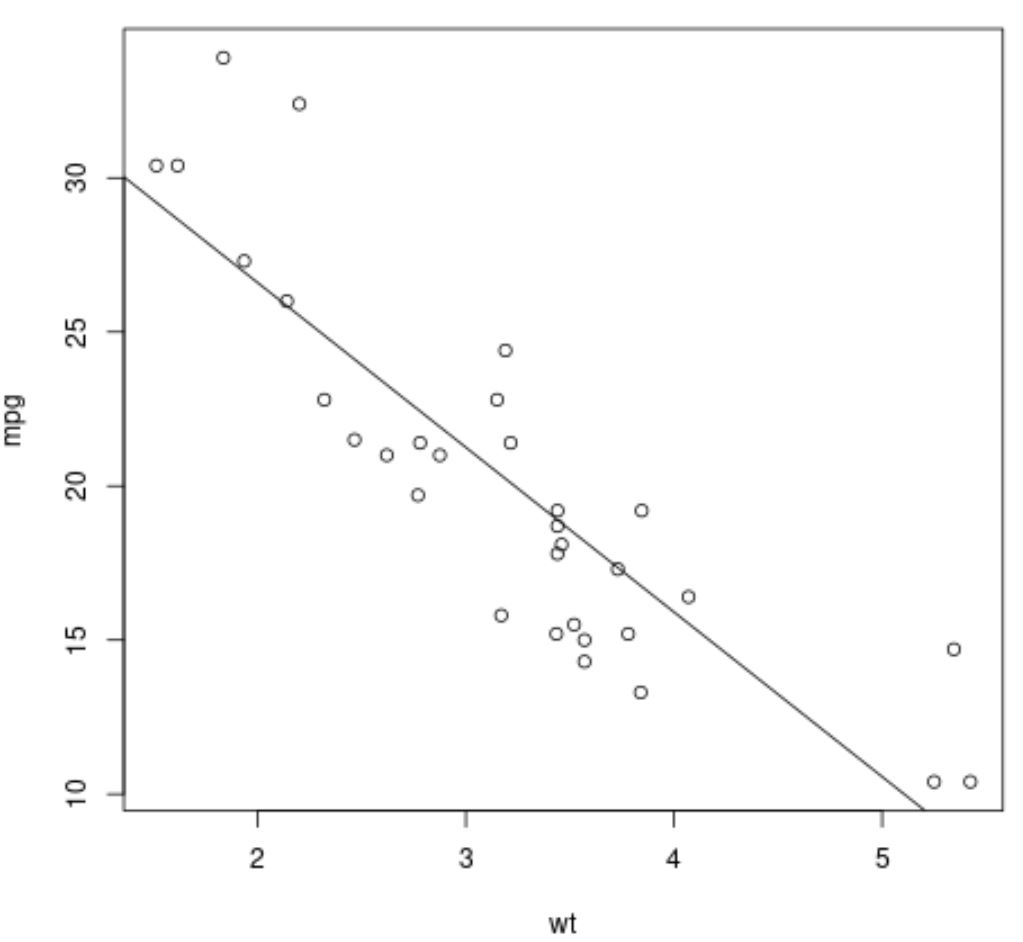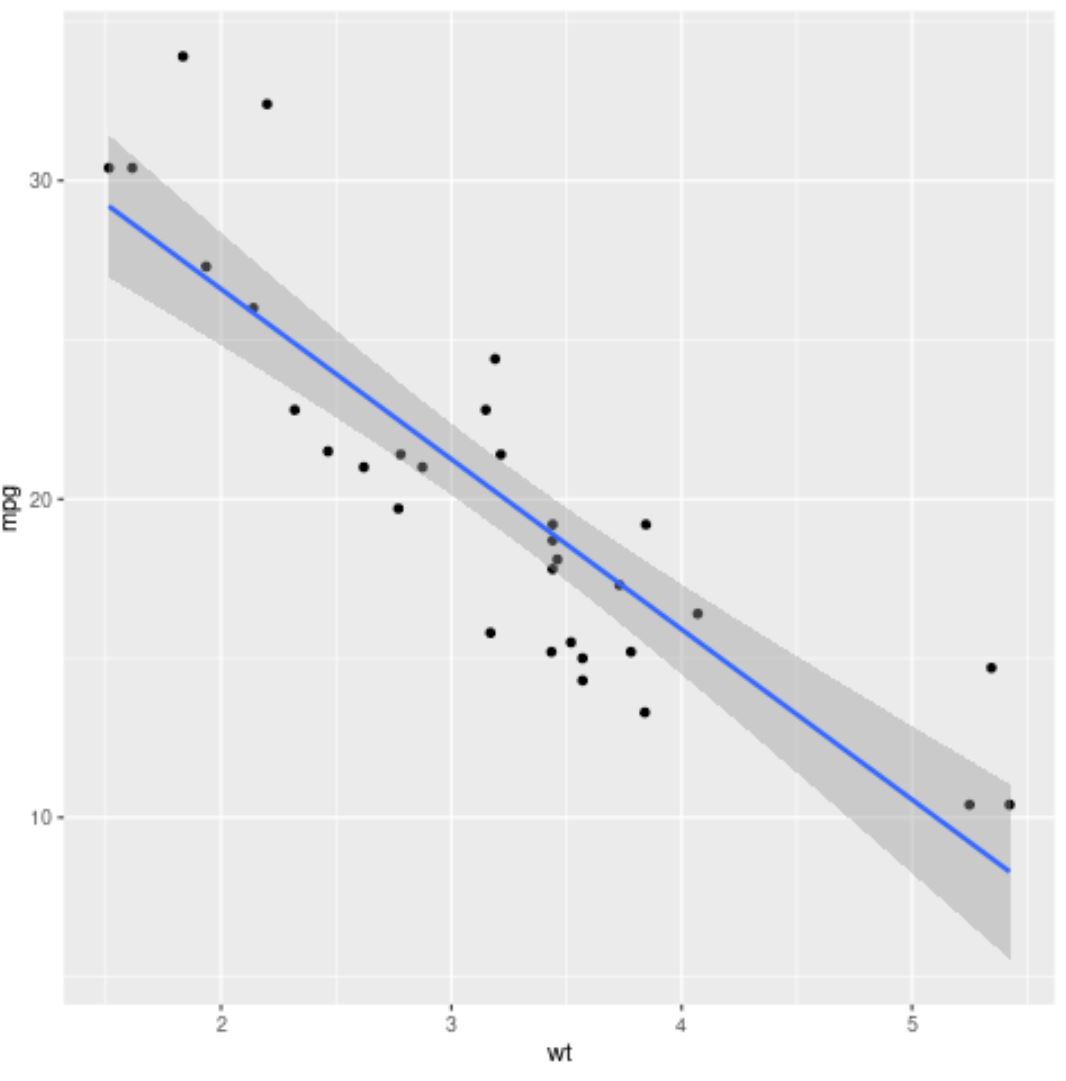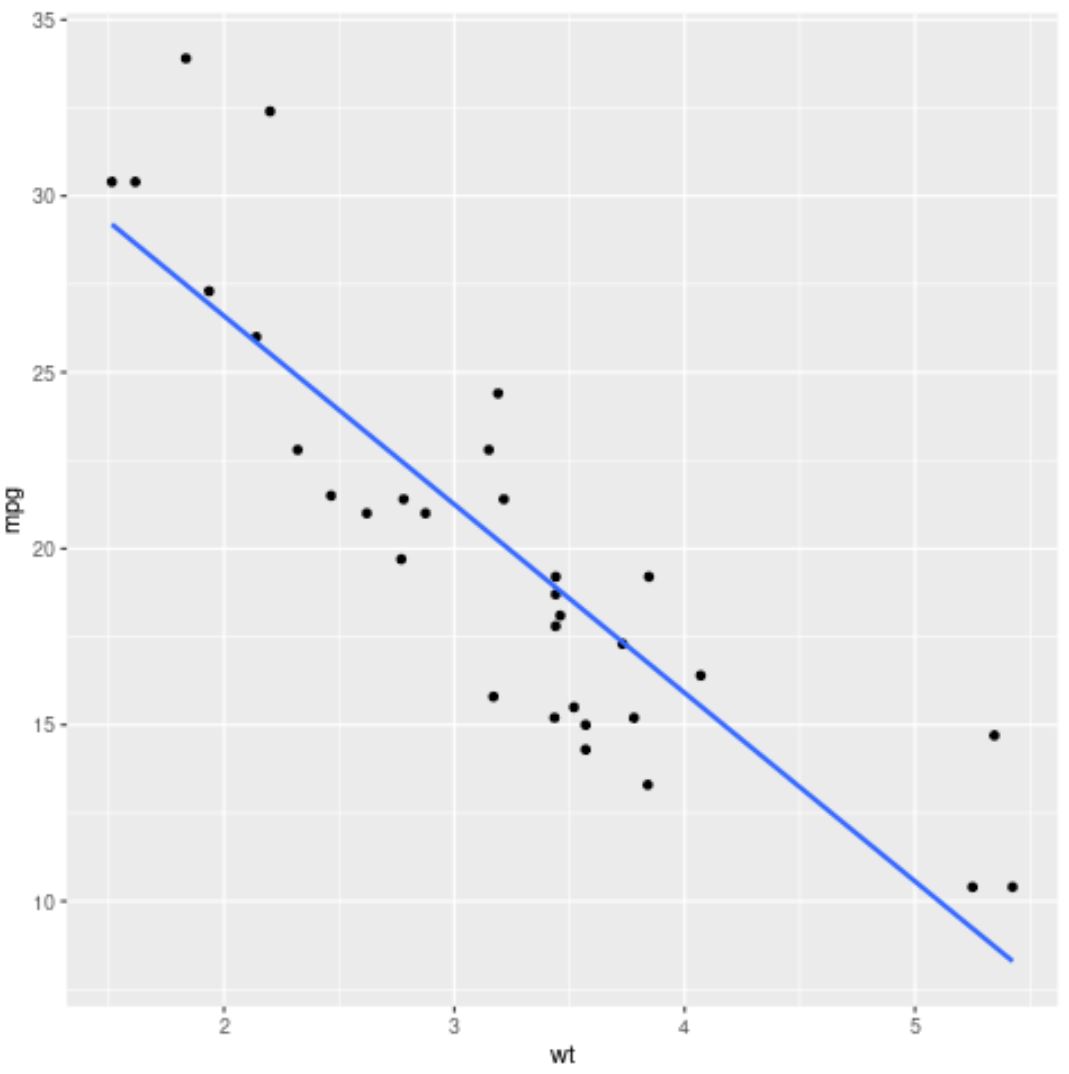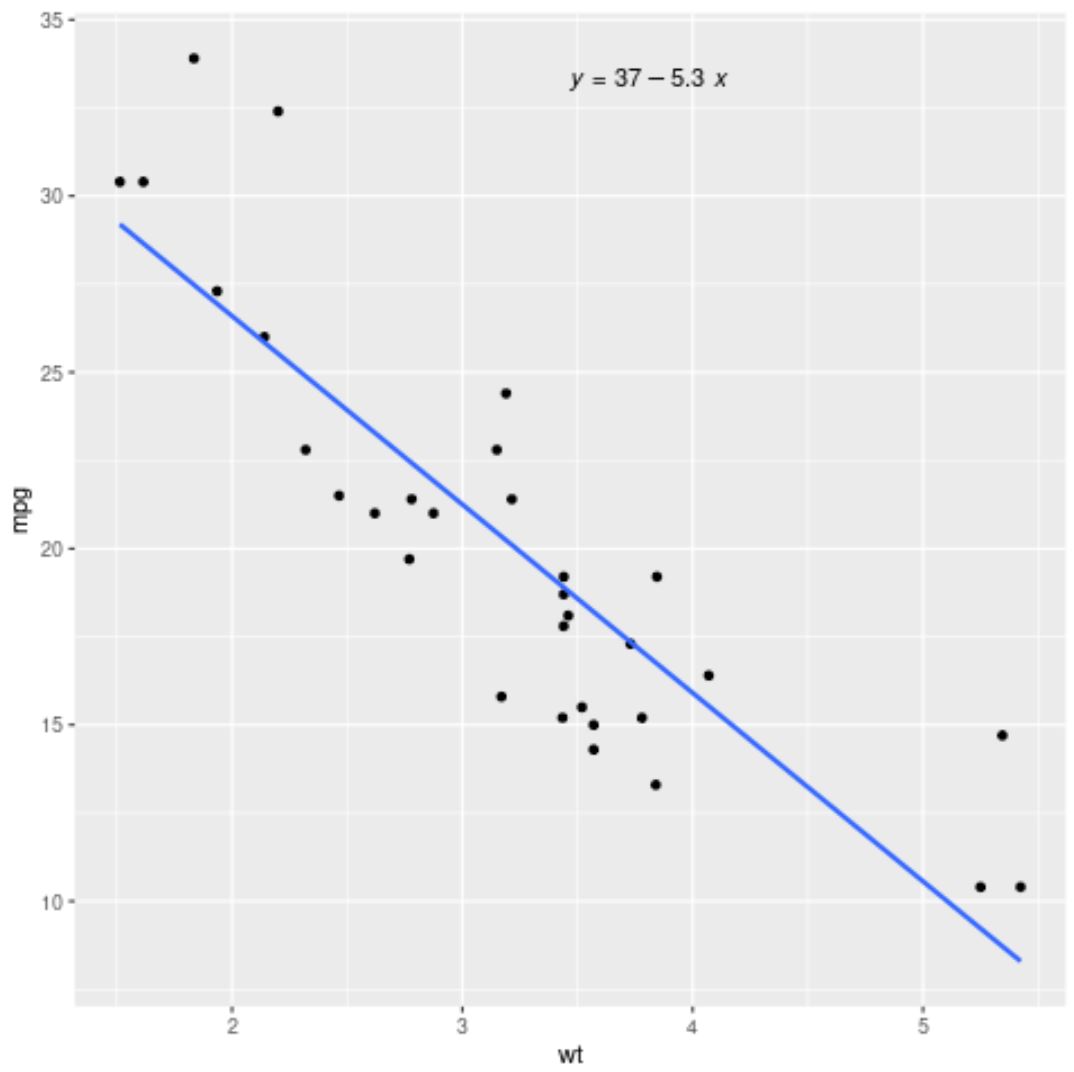如何在 r 中绘制 lm() 结果
您可以使用以下方法绘制 R 中lm()函数的结果:
方法 1:在基数 R 中绘制 lm() 结果
#create scatterplot plot(y ~ x, data=data) #add fitted regression line to scatterplot abline(fit)
方法 2:在 ggplot2 中绘制 lm() 结果
library (ggplot2) #create scatterplot with fitted regression line ggplot(data, aes (x = x, y = y)) + geom_point() + stat_smooth(method = " lm ")
以下示例展示了如何在实践中使用 R 中内置的mtcars 数据集来使用每种方法。
示例 1:绘制基本 R 中的 lm() 结果
以下代码显示了如何在基本 R 中绘制lm()函数的结果:
#fit regression model
fit <- lm(mpg ~ wt, data=mtcars)
#create scatterplot
plot(mpg ~ wt, data=mtcars)
#add fitted regression line to scatterplot
abline(fit)

图中的点代表原始数据值,直线对角线代表拟合回归线。
示例 2:在 ggplot2 中绘制 lm() 结果
以下代码展示了如何使用ggplot2数据可视化包绘制lm()函数的结果:
library (ggplot2)
#fit regression model
fit <- lm(mpg ~ wt, data=mtcars)
#create scatterplot with fitted regression line
ggplot(mtcars, aes (x = x, y = y)) +
geom_point() +
stat_smooth(method = " lm ")

蓝线代表拟合回归线,灰色带代表 95% 置信区间的极限。
要删除置信区间界限,只需在stat_smooth()参数中使用se=FALSE :
library (ggplot2)
#fit regression model
fit <- lm(mpg ~ wt, data=mtcars)
#create scatterplot with fitted regression line
ggplot(mtcars, aes (x = x, y = y)) +
geom_point() +
stat_smooth(method = “ lm ”, se= FALSE )

您还可以使用ggpubr包中的stat_regline_equation()函数在图表中添加拟合回归方程:
library (ggplot2)
library (ggpubr)
#fit regression model
fit <- lm(mpg ~ wt, data=mtcars)
#create scatterplot with fitted regression line
ggplot(mtcars, aes (x = x, y = y)) +
geom_point() +
stat_smooth(method = “ lm ”, se= FALSE ) +
stat_regline_equation(label.x.npc = “ center ”)

其他资源
以下教程解释了如何在 R 中执行其他常见任务: